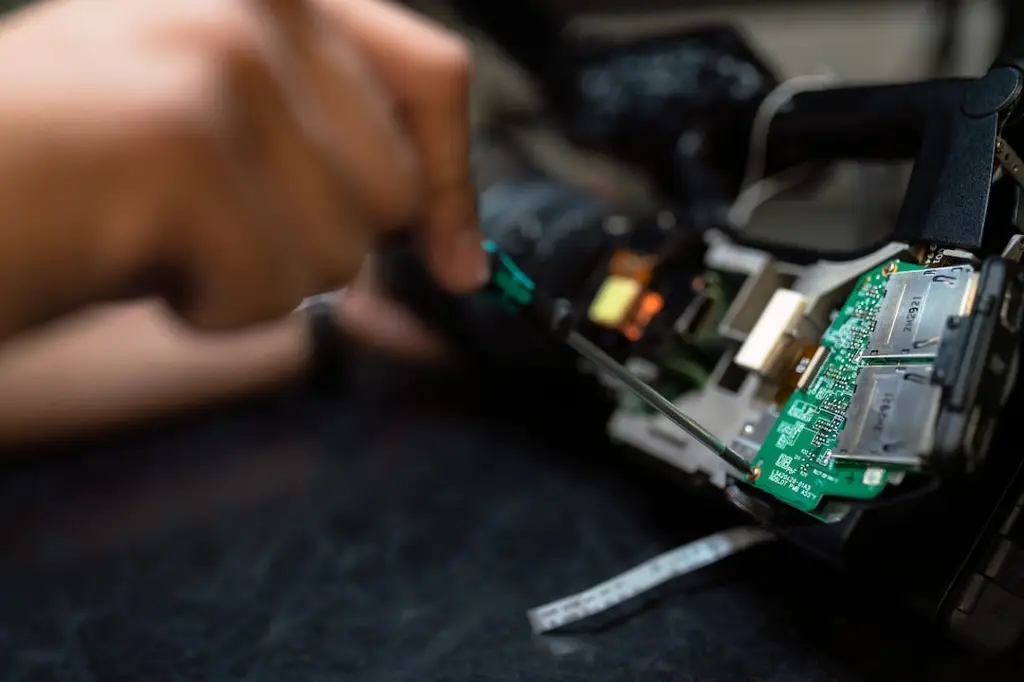Computer Hardware Engineers – Exploring a Challenging Career Path
The occupation of computer hardware engineers involves designing, developing, and testing computer hardware components such as processors, circuit boards, memory devices, and routers. They are responsible for the research, design, and development of computer systems and equipment, and ensure that they function efficiently and effectively.
Examples of Computer Hardware Engineer Responsibilities
Computer hardware engineers can work on various projects and tasks that involve hardware development and optimization. Some specific examples of their job responsibilities include:
- Designing computer hardware components considering factors like cost, reliability, and power consumption.
- Testing and verifying the compatibility, functionality, and performance of computer hardware systems.
- Collaborating with software engineers to ensure hardware-software integration and optimize system performance.
- Updating and modifying existing computer hardware components to improve functionality or adapt to new technologies.
- Keeping up-to-date with advancements in computer hardware technology and applying them to ongoing projects.
Education and Training
To pursue a career as a computer hardware engineer, a minimum of a bachelor’s degree in computer engineering, electrical engineering, or a related field is typically required. Some employers may prefer candidates with a master’s degree for more research-oriented roles or specialized positions.
The educational curriculum for computer hardware engineering typically includes courses in computer science, electrical engineering, mathematics, and physics. These courses provide the foundational knowledge necessary to understand and work with computer systems and hardware components.
Progression and Advancement
In the field of computer hardware engineering, progression often comes with experience and acquired skills. Entry-level positions are available for those who have recently graduated, typically as junior hardware engineers or hardware design engineers. As they gain experience and expertise, they may progress to roles such as senior hardware engineer, hardware project lead, or even hardware engineering manager.
Advancement is often tied to a demonstrated ability to work on complex projects, leadership skills, and a solid track record of successful hardware designs and implementations. Continued learning and staying updated with industry trends and advancements are also crucial for career growth.
Entering the Field as a Newcomer
If you are new to the field of computer hardware engineering and want to establish a career in this domain, there are some important steps you can take:
- Earn a relevant degree: Obtain at least a bachelor’s degree in computer engineering, electrical engineering, or a related field.
- Gain practical experience: Look for internships or entry-level positions that allow you to work with computer hardware. This will help you gain hands-on experience and build a strong foundation.
- Continue learning: Stay updated with the latest advancements in computer hardware technology through self-study, online courses, or workshops.
- Networking: Build a professional network by attending industry events, joining relevant associations, and connecting with professionals already working in the field. Networking can open doors to job opportunities and mentorship.
- Showcase your skills: Create a portfolio highlighting your projects, internships, and any relevant certifications or accomplishments. A well-presented portfolio can greatly enhance your chances of getting noticed by potential employers.
Computer Hardware Engineers – Salary Data
| Occupation | Job Level | Salary (Low) | Salary (High) |
|---|---|---|---|
| Computer hardware engineers | Level 09 | $102,419.20 | $85,820.80 |
| Computer hardware engineers | Level 11 | $132,433.60 | $120,203.20 |
| Computer hardware engineers | Level 12 | $193,793.60 | $173,035.20 |
| Computer hardware engineers | Not able to be leveled | $152,401.60 | N/A |
| Computer hardware engineers | Entry | $89,128.00 | N/A |
| Computer hardware engineers | Intermediate | $132,475.20 | N/A |
| Computer hardware engineers | Experienced | $198,660.80 | N/A |
| Computer hardware engineers | Nonunion | $142,376.00 | $126,734.40 |
| Computer hardware engineers | Full-time | $142,105.60 | $127,025.60 |
| Computer hardware engineers | Full-time, Level 09 | $102,897.60 | $86,070.40 |
| Computer hardware engineers | Full-time, Level 11 | $132,017.60 | $119,745.60 |
| Computer hardware engineers | Full-time, Level 12 | $193,648.00 | $172,036.80 |
| Computer hardware engineers | Full-time, Not able to be leveled | $151,216.00 | N/A |
| Computer hardware engineers | Full-time, Entry | $90,584.00 | N/A |
| Computer hardware engineers | Full-time, Intermediate | $132,121.60 | N/A |
| Computer hardware engineers | Full-time, Experienced | $198,452.80 | N/A |
| Computer hardware engineers | Time-based pay | $142,043.20 | $126,817.60 |
| Computer hardware engineers (San Francisco-Oakland-Hayward, CA) | Time-based pay | $178,900.80 | $134,700.80 |
| Computer hardware engineers (Denver-Aurora-Lakewood, CO) | Time-based pay | $127,067.20 | $111,009.60 |
Summary/Conclusion
Becoming a computer hardware engineer can be a rewarding and challenging career choice for individuals fascinated by the inner workings of computers. With the right education, dedication, and experience, you can contribute to the advancement of computer technology and help shape the future of hardware engineering.












